Table of Contents |
guest 2025-12-23 |
Targeted Mass Spectrometry Course at UW
Instructor List
Course Schedule
2022 UW Course
The annual Targeted Mass Spectrometry Course at the University of Washington - was held June 27- July 1, 2022, and for the first time in three years, we were able to hold the course in-person! With a great group of participants and, as always, fabulous instructors, we had an exceptional week of focus on the methods and approaches of targeted mass spectrometry. Despite COVID threatening, our precautions and the diligence of the participants, allowed us to keep the course on track.
Continue to watch the Join Us section of the Skyline homepage for announcement information about this and other future targeted proteomics courses and workshops coming up!
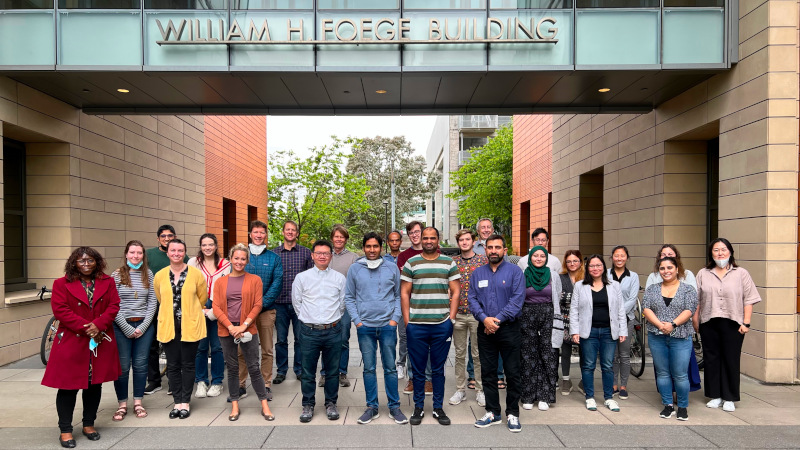
Targeted Mass Spectrometry Course at UW

Dear Skyline Users,
The Skyline Team and our invited instructors are pleased to announce the return of the *in-person* Targeted and Quantitative Mass Spectrometry Course at the University of Washington, the week of June 27 - July 1, 2022 in Seattle, WA. With a course schedule that will address a range of targeted techniques using SRM, PRM, DIA and MS1 filtering, and topics like system suitability, statistical methods for designing and analyzing these experiments and, of course, learning to use Skyline software more effectively in your research. The curriculum will cover Skyline's ability to target and support research methods involving both proteomics and small molecules.
The instructor list includes researchers and software developers with a wealth of combined experience in targeted and quantitative mass spectrometry and in using Skyline to meet the needs of the research community.
Space is limited. Seats will be reserved on a first come - first served basis after full payment is received. If you plan on attending this course, please do not wait to apply as we anticipate high interest after two years of only being able to offer the virtual version of this course, Skyline Online.
Registration includes course materials, refreshments, and a course dinner. Participants should organize their own travel, lodging and meals.
NOTE: A limited number of course fellowships, which include waived course fees, travel, and lodging, for students and postdocs affiliated with US academic and nonprofit institutions will be available. To apply, complete the fellowship application form.
Don't miss this opportunity. Over 99% of previous participants worldwide have said they would recommend a week-long course in targeted mass spectrometry to their peers.
We hope you will join us.
Brendan MacLean,
Skyline Project Lead
When: June 27 - July 1, 2022
Where: Foege Building, University of Washington, Seattle
(Meet at 9am Monday between Foege South and North) (map)
Cost: $450 academic, $1,200 industry
Apply by: First-come, first-registered, until full.
Pay by: At time of registration
Participants: 30
Room & Board: Not included.
Related Links:
Course Schedule
Instructor List
Instructor List
The following instructors and speakers have agreed to contribute their expertise to the success of UW Course:
 |
Michael J. MacCoss, Ph.D. Mike became interested in biomedical applications of mass spectrometry while working in Dr. Patrick Griffin’s protein mass spectrometry lab at Merck Research Laboratories. He obtained a Ph.D. with Professor Dwight Matthews and pursued a postdoc with Professor John R. Yates III. In 2004 he started the MacCoss lab at the University of Washington and it became obvious that while mass spectrometry data could be collected quickly and robustly, the lack of computational tools for the visualization and analysis of these data was a stumbling block. In 2009 he recruited Brendan MacLean with the goal of developing professional quality software tools for quantitative proteomics. Mike has worked closely with the Skyline development team and our outstanding group of laboratory scientists and collaborators to ensure that our software uses analytical approaches that have been thoroughly vetted by the mass spectrometry community. |
|
 |
Brendan MacLean Brendan worked at Microsoft for 8 years in the 1990s where he was a lead developer and development manager for the Visual C++/Developer Studio Project. Since leaving Microsoft, Brendan has been the Vice President of Engineering for Westside Corporation, Director of Engineering for BEA Systems, Inc., Sr. Software Engineer at the Fred Hutchinson Cancer Research Center, and a founding partner of LakKey Software. In this last position he was one of the key programmers responsible for the Computational Proteomics Analysis System (CPAS), made significant contributions to the development of X!Tandem and the Trans Proteomic Pipeline, and created the LabKey Enterprise Pipeline. Since August, 2008 he has worked as a Sr. Software Engineer within the MacCoss lab and been responsible for all aspects of design, development and support in creating the Skyline Targeted Proteomics Environment and its growing worldwide user community. |
|
 |
Chris Ashwood, Ph.D. |
|
 |
Meena Choi, Ph.D. |
|
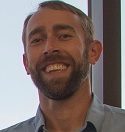 |
Josh Eckels |
|
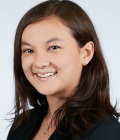 |
Danielle Faivre Danielle is a Genome Sciences Ph.D. student in the MacCoss lab at the University of Washington. Her research focuses on neurodegenerative diseases and uses quantitative proteomics approaches to study protein structure, turnover, and aggregation in cerebrospinal fluid and brain tissue. Before joining the MacCoss lab, Danielle received a B.S. in Biochemistry at the University of Notre Dame and worked under Dr. Norman J. Dovichi. In the Dovichi lab, her research involved method development for capillary electrophoresis-electrospray ionization-mass spectrometry (CE-ESI-MS) and using CE-ESI-MS to analyze the developmental metabolome of Xenopus laevis. |
|
 |
Lilian Heil Lilian is a PhD student in Genome Sciences interested in developing methods for the acquisition and analysis of quantitative proteomics data. She joined the department in the fall of 2019 after graduating from the University of North Carolina in the winter of 2018 with a B.S. in Chemistry. Before graduate school, she worked in the Hicks Lab at UNC for 2 years as an undergraduate trainee and for several months as a full time research assistant using mass spectrometry to identify and characterize novel bioactive peptides. There, she helped to discover and sequence a novel antimicrobial peptide from Amaranthus tricolor and developed a passion for mass spectrometry. |
|
 |
Lindsay K. Pino, Ph.D. Lindsay is the co-founder and chief technology officer at Talus Bioscience. With over a decade’s experience in analytical chemistry and computational biology, she works on developing techniques for quantitative proteomics. In particular, at Talus her focus is on the challenges associated with scaling-up quantitative proteomics experiments. She is directly involved in a large variety of research projects spanning cancer, molecular mechanisms of aging, epigenetics, and spatiotemporal proteomics, all built on her foundational skills in quantitative mass spectrometry proteomics. |
|
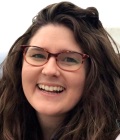 |
Deanna Plubell, Ph.D. Deanna is a PhD student in the MacCoss lab at the University of Washington. A portion of her research has been the use of data-independent acquisition to aid in peptide selection for targeted assay development. Her other research interests include the use of mass spectrometry techniques for detecting proteolytic cleavage activity and small endogenous polypeptides in neurodegenerative disease. Prior to joining the MacCoss lab, Deanna worked at Oregon Health & Science University where she used both discovery and targeted proteomics methods to investigate changes to adipose tissue and lipoprotein proteomes in cardiovascular and metabolic diseases. |
|
 |
Brian Searle Brian Searle, Ph.D. Brian is an Assistant Professor at the Ohio State University Medical Center in the Department of Biomedical Informatics and a member of the Pelotonia Institute for Immuno-Oncology (PIIO). Brian received his chemistry BA at Reed College in 2001. In 2004, he co-founded Proteome Software with Mark Turner and Dr. Ashley McCormack to produce and distribute cutting-edge data analysis software for proteomicists. In 2014, he returned to academia to earn his PhD with Dr. Michael MacCoss at University of Washington, where he developed methods to detect and quantify proteins and phosphosites using mass spectrometry. His lab at PIIO spans the intersection of proteomics, mass spectrometry, bioinformatics, and technology development to study human genetic variation in the backdrop of cancer. |
|
 |
Nicholas Shulman - development, support Nick worked from 1995-2000 at Microsoft on the Microsoft Access team, leaving to join Westside Corporation with Brendan to create browser-based database design tools. After Westside was acquired by BEA Systems, Nick created a new graphical JSP designer for Weblogic Workshop, an award winning Integrated Development Environment for enterprise Java applications. At LabKey Corporation, Nick created the flow cytometry module and the graphical query designer. Since March, 2009 he has worked in the Maccoss lab on Skyline and Topograph, a quantitative analysis tool for protein turnover experiments. |
|
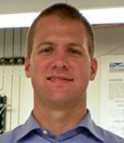 |
J. Will Thompson, Ph.D. Will is Principal Scientist at 908 Devices Inc and Adjunct Assistant Professor in the Department of Pharmacology and Cancer Biology at Duke University. He received his Ph.D. in Ultrahigh Pressure Liquid Chromatography from the laboratory of Dr. Jim Jorgenson at the University of North Carolina at Chapel Hill, and subsequently joined the Disease and Biomarker Proteomics group led by Dr. Arthur Moseley at GlaxoSmithKline. In 2007, Will assisted Dr. Moseley in founding the Duke Proteomics Core Facility, and as the Assistant Director led the clinical and basic sciences metabolomics efforts of the Duke core from 2014 to 2021, coauthoring over 100 peer reviewed publications. In 2021 he joined 908 Devices Inc as a Principal Scientist in R&D, working to expand metabolite and proteomics efforts of the ZipChip and Rebel platforms. |
Course Schedule
Monday: Introduction to targeted quantitative proteomics and Skyline
- Meet at Foege S. (between Foege South and North) at 9am
- Welcome and intro to targeted proteomics and quantitative analysis
- Basics of mass spectrometry for targeted MS
- Intro to Skyline
- Tutorial: SRM method development and refinement
Tuesday: Panorama, parallel reaction monitoring, system suitability and iRT
- PRM method development
- Tutorial: Working with PRM data
- System suitability and quality control
- Tutorial: Using Panorama for publishing data and Auto QC
- Tutorial: SRM libraries and iRT
Wednesday: Standards, calibration, statistics for quantitative experiments and Panorama
- Statistical considerations in study design
- Statistical analysis of proteomics experiments
- Standards for targeted proteomics
- Signal calibration and absolute quantification
- Targeting and quantifying small molecules in Skyline
Thursday: Sample prep, DIA, methods and data analysis
- Sample prep for targeted proteomics
- Introduction data independent acquisition (DIA)
- Tutorial: Analysis of DIA data in Skyline
Friday: Plasma proteomics and the future
- Plasma proteomics - Validation
- Tutorial: Processing grouped study data in Skyline
- Review and test
- Conclusion: The future of targeted proteomics
The course also includes popular morning “Sky-Jam” sessions led by Brendan MacLean with hands-on Skyline processing.
Note: As instructors update their content for this course, this list may change slightly.